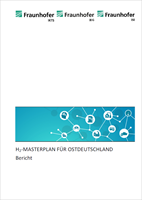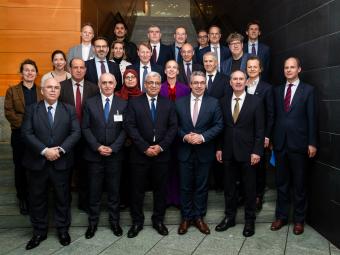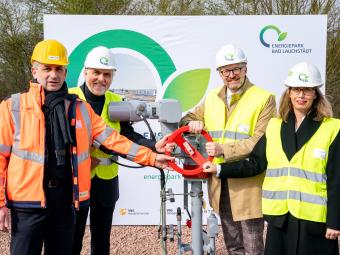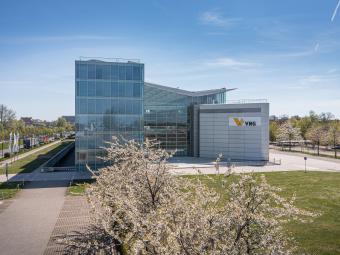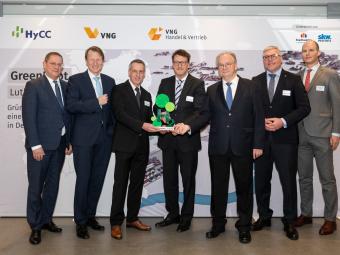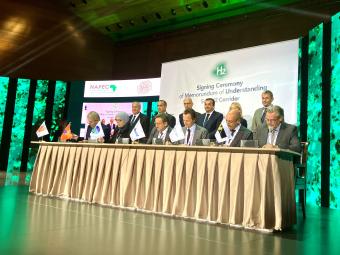"Hydrogen master plan for eastern Germany" outlines the steps towards establishing a hydrogen economy in eastern Germany
- Significant potential for new hydrogen-based value stream in eastern Germany
- Demand for hydrogen from the industrial and transport sectors to reach 17.3 TWh by 2030 and around 49 TWh by 2050
- More than 50 detailed proposals for a successful hydrogen market ramp-up
- An “Eastern German Hydrogen Agency” could coordinate cross-border cooperation
Green and sustainable hydrogen will be the climate-neutral succes-sor to the fossil fuels we use today. This transition has the potential to invigorate the economy and launch new value chains across different regions –especially by looking beyond state borders and generating synergies with a big-picture perspective, as three Fraunhofer Institutes have proposed in their joint study “Hydrogen Master Plan for Eastern Germany”.
The Fraunhofer Research Institution for Energy Infrastructures and Geothermal Systems (IEG), Fraunhofer Institute for Systems and Innovation Research (ISI) and Fraunhofer Institute for Ceram-ic Technologies and Systems (IKTS) have compiled a report for eastern Germany which outlines the challenges and opportunities involved in establishing a hydrogen economy with an unprecedented level of detail. The master plan is the first report to include forecasts of the demand for hydrogen from individual sectors in all states of eastern Germany for the years 2030 and 2050.
“Switching to hydrogen presents a huge opportunity for players in the economic, scientific and po-litical spheres to work together and combine forces in eastern Germany. This is exactly what the “Master Plan for Eastern Germany” is for, highlighted Prof. Mario Ragwitz, head of the Fraunhofer Research Institution for Energy Infrastructures and Geothermal Systems (IEG) and spokesman of the Fraunhofer Society’s Hydrogen Network. “The energy, raw materials, automotive and plant engineering industries play a vital role in establishing a sustainable hydrogen economy in eastern Germany. The master plan includes the first detailed case studies which forecast demand and value chain figures through to 2030 and beyond.”
The experts from the three Fraunhofer Institutes have submitted more than 50 detailed proposals to establish a sustainable hydrogen economy in eastern Germany, which include founding an “Eastern Germany Hydrogen Agency” to represent all of eastern Germany’s hydrogen-related in-terests, support companies with their investment plans and give the region a strong voice on hy-drogen-related matters.
Specific results of the Hydrogen Master Plan for Eastern Germany
Wide variety of stakeholders identified along the hydrogen value chain
Studies on the hydrogen value chain in eastern Germany previously focused on narrow geographic areas or individual states. As a result, they failed to provide a comprehensive overview of the com-panies involved in the hydrogen value chain in eastern Germany. The master plan is the first report to provide a comprehensive rundown of the eastern German entrepreneurs and companies in-volved. Over 660 stakeholders have been identified, assessed and placed at different stages of the value chain. This extensive overview will facilitate networking between individual stakeholders, create synergies and prevent duplicate structures or even cannibalization effects from forming amongst individual regions.
Different states have strengths that complement each other
The master plan also contains detailed profiles of the strengths and weaknesses of each state. The results make it clear that these profiles complement each other perfectly and provide an excellent foundation for cooperation between states. Mecklenburg-Western Pomerania and Brandenburg can generate significant amounts of sustainable energy. Both of these states also have considera-ble expertise in the field of power plant technology. Saxony-Anhalt has wide-ranging experience in the chemical industry and a sophisticated gas storage infrastructure. Saxony’s core competence lies in plant and mechanical engineering, while Thuringia has a significant focus on safety, measure-ment, instrumentation and control technology.
The first detailed hydrogen demand forecast for eastern Germany
Three cross-state case studies were developed based on the eastern German network of stake-holders, the strengths and weaknesses profiles, and a simulation model by Fraunhofer ISI. This succeeded for the first time ever in determining a quantitative and qualitative forecast of hydrogen demand in the industrial and transport sectors for all states in eastern Germany.
Demand is expected to reach around 15 terawatt hours (TWh) over the short to medium term, largely stemming from refineries, the chemical sector and steel production. Transport could ac-count for a further 2.3 TWh. In 2050, the potential demand from the transport sector could reach 12 TWh, and 37 TWh from the industrial sector. For comparison: Based on the national hydrogen strat-egy, the Federal government expects Germany’s hydrogen demand to be approx. 90 to 110 TWh in 2030.
More than 50 proposed measures should ensure a successful market ramp-up.
More than 50 detailed proposals have been submitted to state governments in eastern Germany to incentivise and take advantage of these value generation and demand potentials. These range from developing specific approval procedures to making changes to procurement guidelines and establishing detailed training programs.
The master plan also suggests establishing a Hydrogen Agency for Eastern Germany in order to sus-tainably promote the hydrogen economy across state borders. This agency would ensure a coordi-nated political effort between states and a unified approach amongst companies, politicians and scientists. The Hydrogen Agency also aims to bring companies from the various sectors and stages of the value chain together and support them in close cooperation. This should make it possible to bring major entrepreneurial projects to fruition.
“We need to transition to climate-neutral hydrogen in different sectors in order to decarbonise our society. Our efforts to ramp up the market must be broad in scope, both geographically and in terms of the sectors involved. As an eastern German company, we welcome the proposals of the experts from the Fraunhofer Institutes, who have identified specific measures which can maximise value creation in eastern Germany while decarbonising our society by building a sustainable hydro-gen economy”, says Ulf Heitmüller, CEO of Leipzig-based VNG AG, which commissioned the Fraun-hofer Society with the development of the master plan.
Press contact:
Kosta Schinarakis
Leiter Wissenschaftskommunikation
Fraunhofer IEG
Teil. +49 170 887 888 6
www.ieg.fraunhofer.de
Christian Roos
VNG AG
Tel: +49 341 443-5946
presse@vng.de
www.vng.de
Download the “Hydrogen Master Plan for Eastern Germany” study here:
ABOUT FRAUNHOFER IEG
We are designing the climate-neutral energy systems of the future
We, the Fraunhofer Research Institution for Energy Infrastructures and Geothermal Energy (IEG), are a think-tank for the energy transition and develop our ideas from the outline to the implemen-tation along the entire value chain of energy system transformation. With our partners from indus-try and the public sector, we identify projects with great relevance for climate protection, make real applications possible and shape the energy transition. We are located in the structurally trans-forming regions of Lusatia, the Rhineland, and the Ruhr region, as well as in the industrial region of the Upper Rhine. With our team’s know-how, we support sustainable transformation on a local, national and international level. Our employees combine the necessary expertise in the fields of analysis, operation, and planning of sector-coupled electricity, gas and heating grids, drilling and geotechnologies, energy and process engineering, energy economics, georesources, and geosci-ences, storage systems, and hydrogen infrastructures. www.ieg.fraunhofer.de
VNG is a group of over 20 companies active in the European energy industry with around 1,900 employees. Headquartered in Leipzig, the group is a gas importer and wholesaler as well as an operator of critical gas infrastructure in the areas of natural gas transport and storage, ensuring a secure energy supply in Germany. With our commitment, projects and investments for the market ramp-up of renewable and decarbonised gases such as biogas and hydrogen, we are also creating new perspectives, actively driving change in the energy sector and strengthening our home region. Dependable, approachable and always moving. VNG – Energy. On the move.
Media pictures
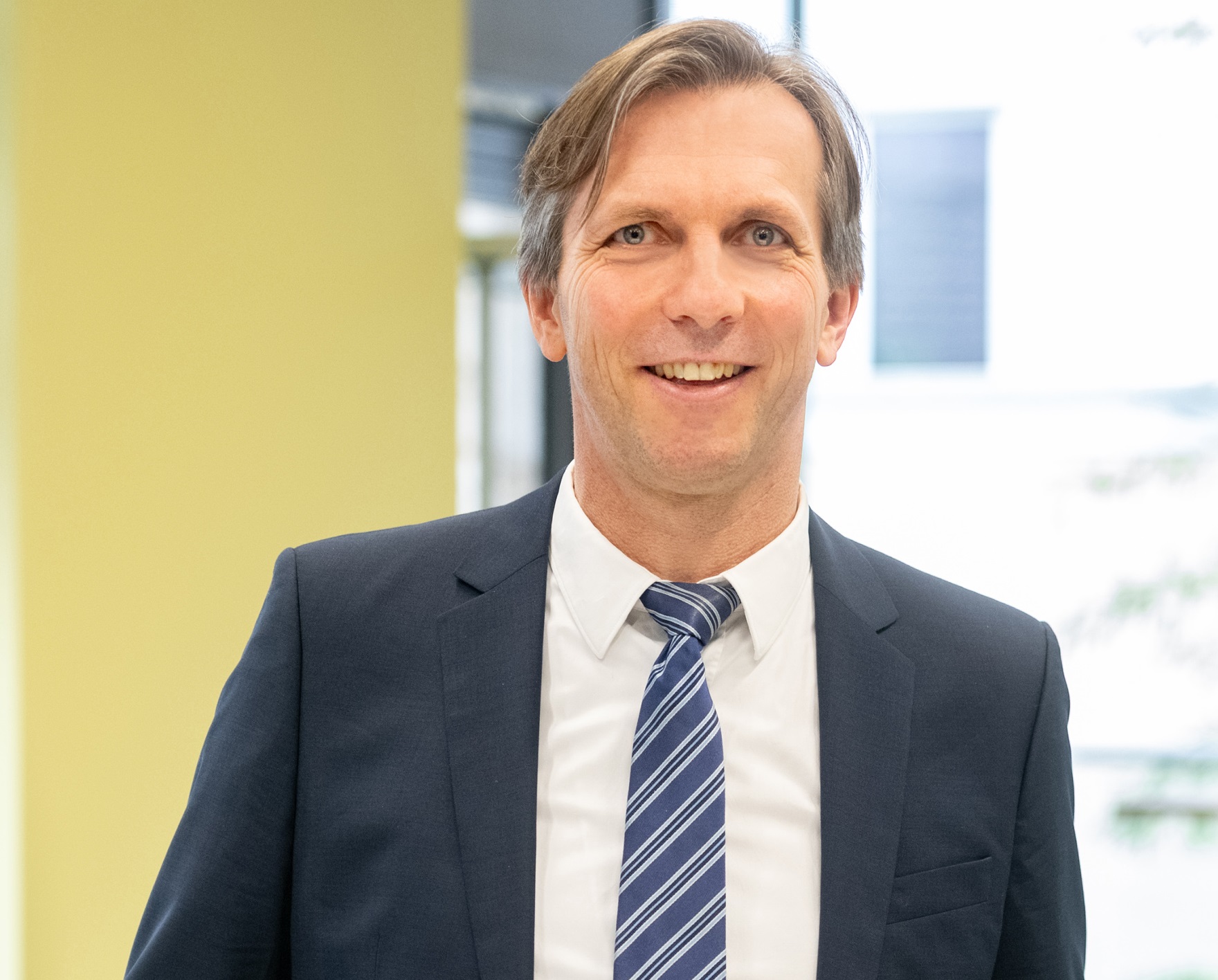
Prof. Dr. Marin Ragwitz, head of Fraunhofer Research Institution for Energy Infrastructures and Geothermal Systems IEG. © Fraunhofer IEG/ S. Effner
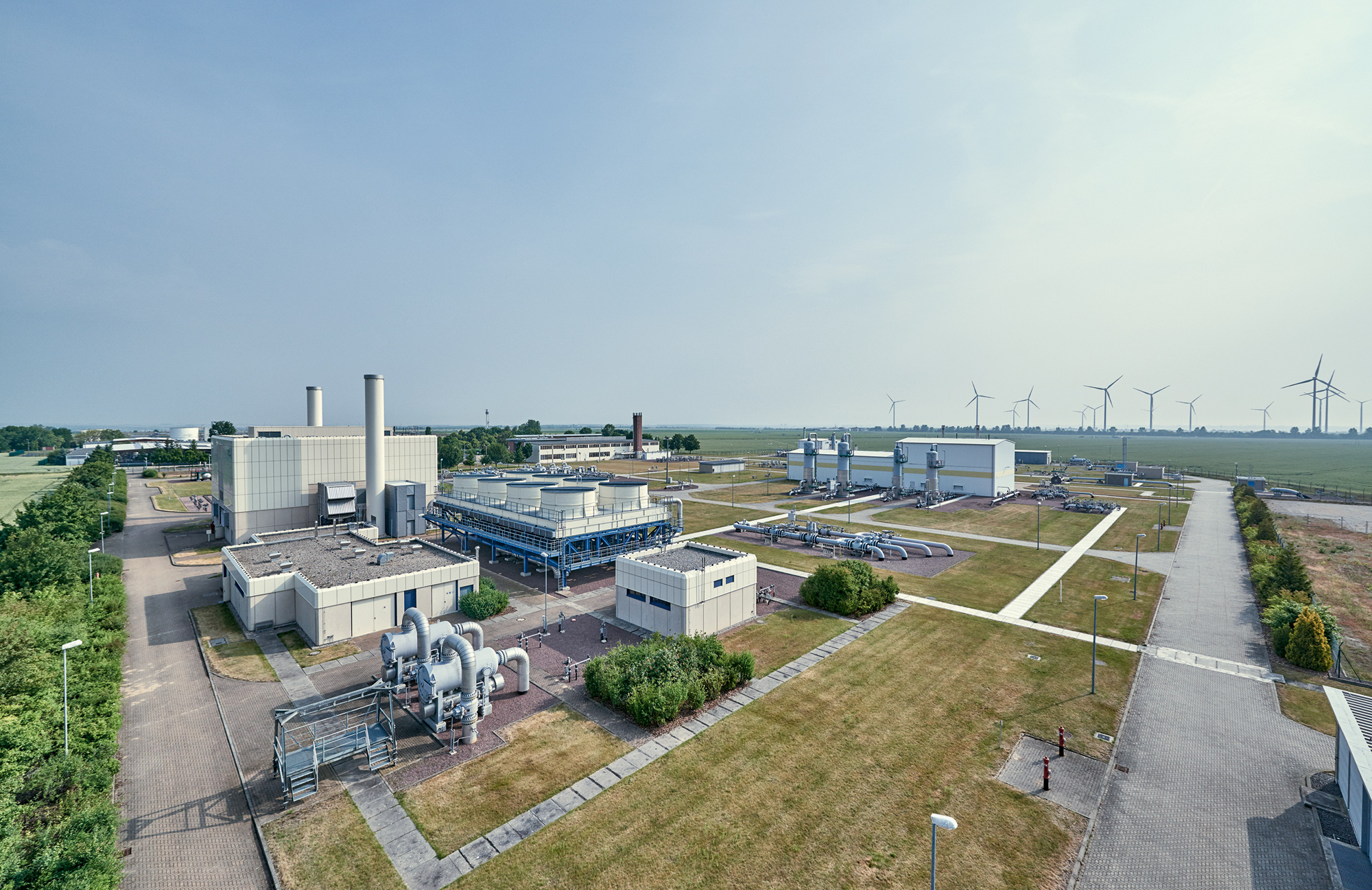
Energiepark Bad Lauchstädt. © Torsten Proß/Jeibmann Photographik
